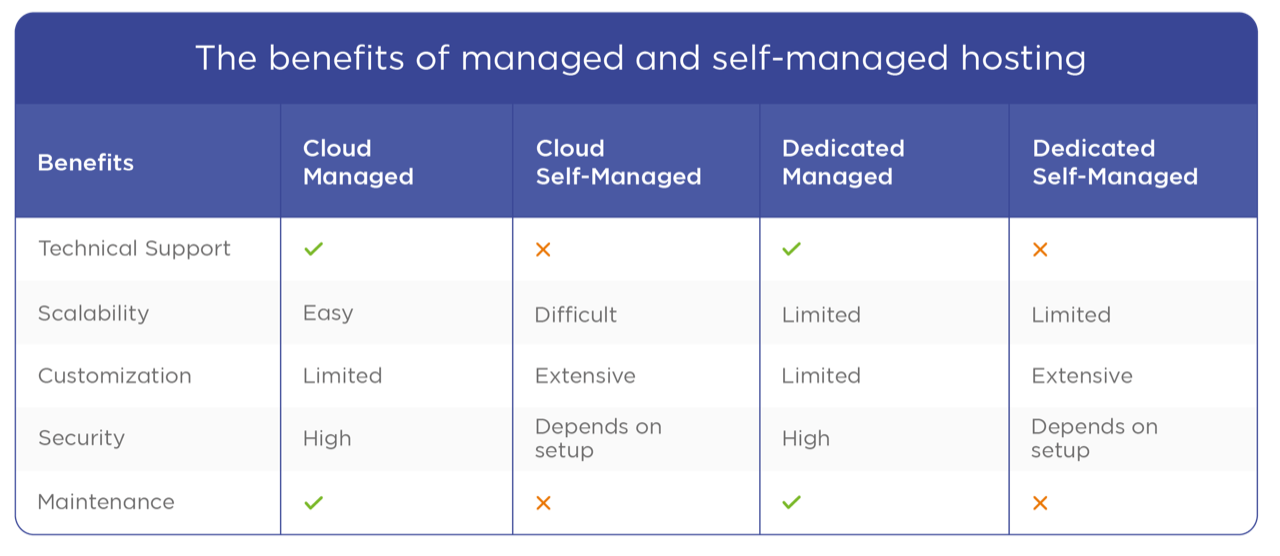Dedicated (physical) and Cloud (virtual) hosting explained
In today's digital age, having a website is essential for any business or individual. However, when it comes to hosting your website, the choices can be overwhelming. In this article, we will explore the differences between Dedicated Hosting and Cloud hosting.
1. What is the difference between Dedicated and Cloud hosting.
Choosing dedicated hosting means that you are leasing a physical server for your exclusive use. This means you have complete control over the server and can customise it to meet your specific needs. Dedicated hosting is often preferred by large businesses or organisations that require high performance, security, and reliability for their websites or applications.
With cloud server hosting, you can host your website or application on a virtual server that is part of a larger network of servers. Cloud server hosting provides you with a high degree of scalability and flexibility, allowing you to easily adjust your server resources based on your changing needs. Furthermore, cloud server hosting provides you with high availability, and reduces the risk of downtime or data loss.
2. Who is Dedicated or Cloud hosting best suited for.
Dedicated hosting is best suited for businesses or individuals who require complete control over their server and resources. This means having exclusive access to a physical server that is not shared with any other users. Dedicated hosting is also suitable for websites that receive high traffic or require high performance, as it provides greater reliability, stability, and security.
If you would like to know How to sign up for dedicated hosting, please read our help centre article.
On the other hand, cloud hosting is best suited for businesses or individuals who require flexibility and scalability. With cloud hosting, resources are distributed across multiple servers, which means that if one server fails, there are others to take over. Cloud hosting is also ideal for websites that experience fluctuations in traffic, as resources can be scaled up or down as needed.
If you would like to know How to sign up for cloud hosting, please read our help centre article.
3. What can I host on a Dedicated or Cloud hosting
Dedicated and cloud hosting offer a wide range of hosting options for different types of websites and applications.
With dedicated hosting, you have exclusive use of a physical server and can typically host a variety of websites, applications, and databases, such as:
- High-traffic websites or applications that require a lot of resources.
- Websites or applications that require a high level of security and compliance.
- Online gaming servers.
- Video streaming platforms.
- Large databases and data storage.
On the other hand, with cloud hosting, you can host a variety of websites, applications, and services, such as:
- E-commerce websites.
- Content management systems (CMS).
- Customer relationship management (CRM) systems.
- Business intelligence and analytics platforms.
- Mobile applications.
- Software as a Service (SaaS) applications.
- DevOps tools and services.
4. What are the benefits of managed and self-managed hosting
Managed hosting involves a hosting provider handling many technical aspects of hosting, such as maintenance and technical support, while self-managed hosting requires the client to handle these responsibilities themselves. To help with the decision-making process, the following table highlights some of the key benefits of each option for both cloud and dedicated hosting.

Choosing the right type of hosting depends on the specific needs and requirements of the business or individual. Dedicated hosting is best suited for those who require complete control and reliability, while cloud hosting offers flexibility and scalability. Both types of hosting offer a wide range of hosting options for different types of websites and applications. Additionally, the decision between managed and self-managed hosting depends on the technical expertise and resources of the client. It is important to carefully consider these factors before making a decision on the type of hosting to choose.

